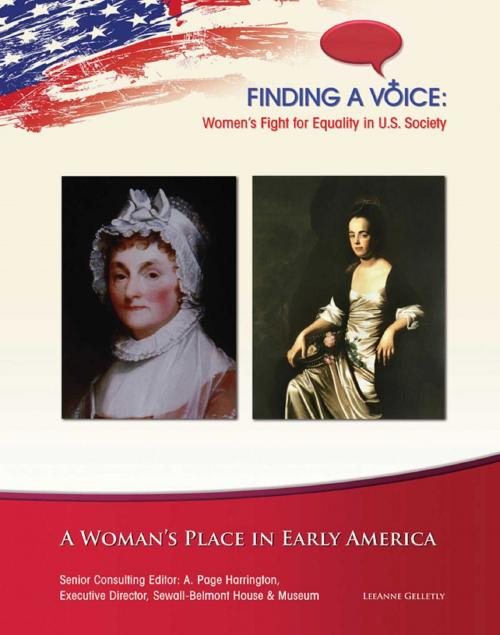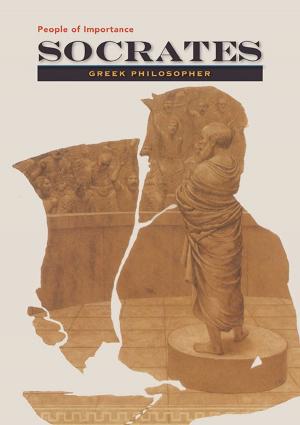A Woman's Place in Early America
Kids, People and Places, Sociology, School Tools, Social Science, History| Author: | LeeAnne Gelletly | ISBN: | 9781422293485 |
| Publisher: | Mason Crest | Publication: | September 2, 2014 |
| Imprint: | Mason Crest | Language: | English |
| Author: | LeeAnne Gelletly |
| ISBN: | 9781422293485 |
| Publisher: | Mason Crest |
| Publication: | September 2, 2014 |
| Imprint: | Mason Crest |
| Language: | English |
In early America, married women had no rights under law. They belonged to their husbands. Their voices were not heard in public. But with the War of Independence, women found a voice as patriots. They supported the rebellion with boycotts. During wartime, women spied on the enemy. They served as messengers. They tended the wounded. Some even served as soldiers. Women performed daring feats of bravery. And they proved they were capable of doing much more than 18-century society allowed them. Some women called for change. Abigail Adams asked that the laws of the new nation recognize legal and educational rights for women. Judith Sargent Murray called for educational reform. It would take several more decades before women took up the cause for their legal, educational, and political rights. But leaders of the movement would be able to look to 18th-century American women for inspiration.
In early America, married women had no rights under law. They belonged to their husbands. Their voices were not heard in public. But with the War of Independence, women found a voice as patriots. They supported the rebellion with boycotts. During wartime, women spied on the enemy. They served as messengers. They tended the wounded. Some even served as soldiers. Women performed daring feats of bravery. And they proved they were capable of doing much more than 18-century society allowed them. Some women called for change. Abigail Adams asked that the laws of the new nation recognize legal and educational rights for women. Judith Sargent Murray called for educational reform. It would take several more decades before women took up the cause for their legal, educational, and political rights. But leaders of the movement would be able to look to 18th-century American women for inspiration.















